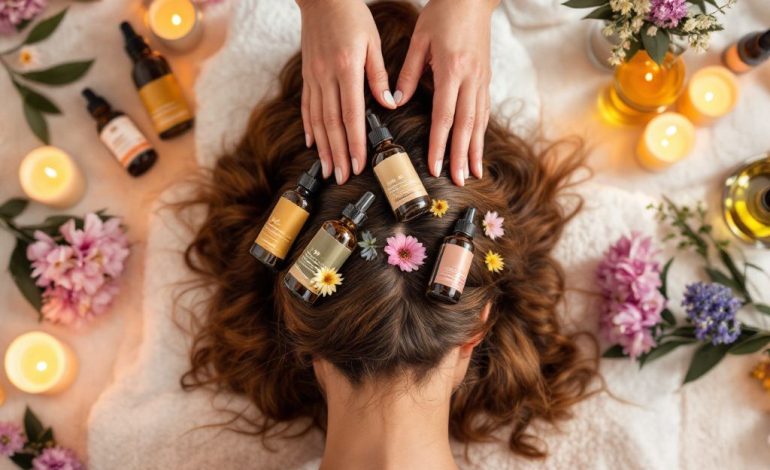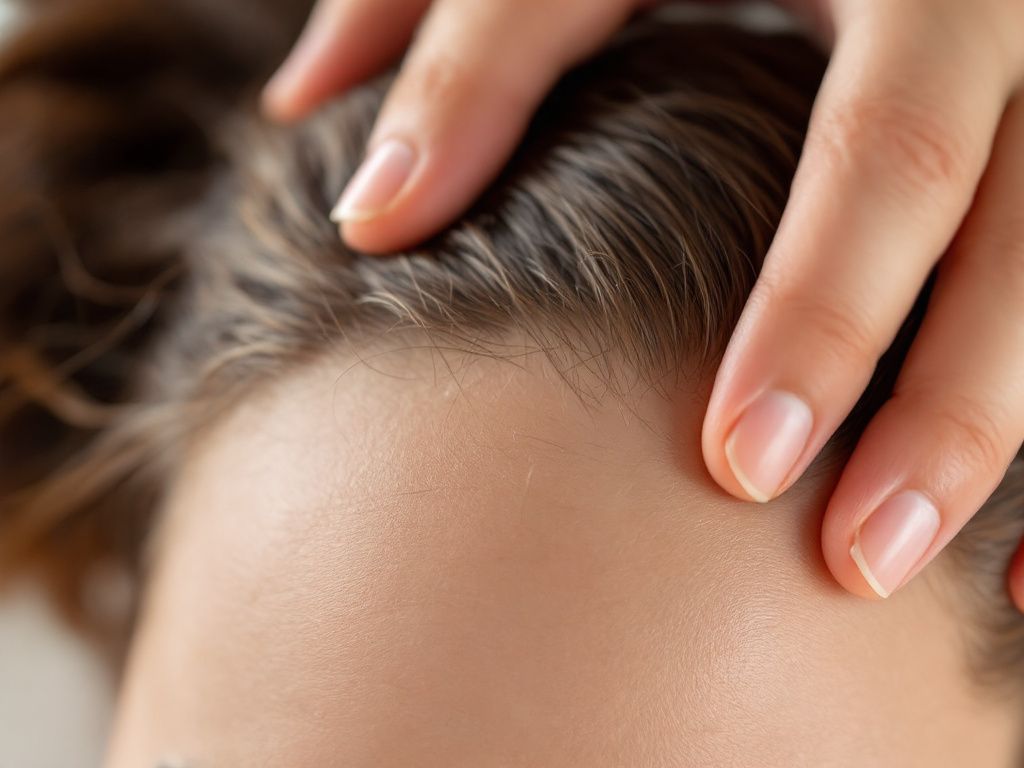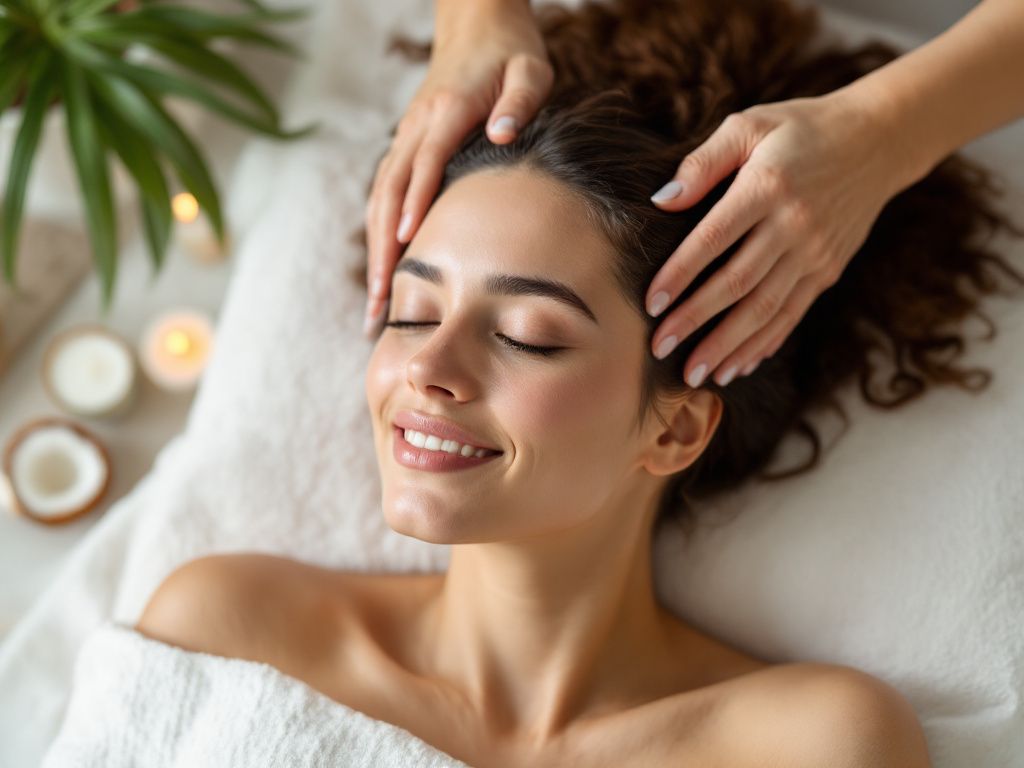Best Oils for Scalp Health: Let’s Chat About Keeping That Scalp Happy

Ever get that annoying itch on your scalp and think, “What did I do to deserve this?” You’re not alone! Ensuring a healthy scalp isn’t the hottest topic at parties, yet it’s essential. A happy scalp usually means happy hair, after all. If you’re anything like me, you’ve probably spent a fair share of time watching tutorials or reading up on the best oils for scalp health. Some swear by them, claiming these beautifying oils can work wonders. But the real question is: which ones are really worth slathering on?
Understanding the Basics
You know that feeling when your scalp just freaks out? Might be product buildup, environmental stress, or just life being life. That’s where oils strut in, promising solace and rejuvenation if you choose correctly. Oils are fantastic because they mimic the natural oils (sebum) your scalp produces. Spotting the right one can bring balance, transforming your hair day nightmares into something much more manageable.
Why Oils?
Let’s face it, dreaded flakes and irritation can crash any hair day. Trust me, everyday shampoos and conditioners don’t always cut it. Now, oils have been used for centuries—mom or grandma might have a dozen stories about their favorite ones. They’ve definitely got some potent properties offering moisture, nourishment, and even repairing capabilities for any damage done over time.
Picking the Best Oils for Scalp Health
Finding that perfect oil is akin to discovering the holy grail. Here’s a little breakdown of some game-changers you might want to slide into your shopping cart.
1. Tea Tree Oil

Dealing with an irritated or flaky scalp? Tea Tree Oil has your back. Its antifungal and antibacterial properties have a reputation for tackling dandruff or minor infections. Just a tiny bit with your regular shampoo can ease irritation.
2. Coconut Oil
Here’s a versatile friend! It’s super hydrating and provides nourishment right down to the root. Perfect if your scalp feels dry and lifeless. Plus, it’s light and penetrates deep, which means your hair doesn’t end up greasy.
3. Peppermint Oil
Reach for peppermint oil if your scalp feels fatigued. Its cooling elements can improve blood circulation and skin health. Imagine it’s like a spa treatment for your scalp—a real cure-all to zest up hair growth.
4. Jojoba Oil
Want to mimic that magical sebum your scalp makes? Jojoba’s your guy. Working wonders for clog-free pores, while allowing growth without additional oiliness. Packed with vitamins and minerals, it makes nurturing your scalp feel luxurious.
5. Argan Oil
Say goodbye to inflammation and dryness with a bit of Argan love. Perfect for soothing sensitive or embattled scalps, this golden oil is packed with antioxidants and fatty acids essential for both scalp and hair vitality.
6. Castor Oil

Think of it as nature’s salon booster! The vitamin E, omega acids, and other nutrients here could turn your thinning hair woes around. Also, castor oil encourages blood flow to the scalp, promoting thicker hair roots.
7. Olive Oil
Ending the lineup with a kitchen favorite. Not just for salads, olive oil has deep-consistency strengths that target dryness and dandruff while sneaking moisture deep into hair shafts.
Getting the Best Out of Oils
Okay, so now you’ve rounded up those bottles; here’s how to truly make them dance.
Oil Application Know-How
Applying these oils can be therapeutic when done right. Use them as a pre-wash treatment or an overnight treatment (if you don’t mind bedding down with them). Gently massage your chosen oil into your scalp. Boosting circulation here, not only strengthens roots but can be seriously relaxing, too!
Queen of DIY: Oil Blends
Feeling experimental? Here’s a suggestion—try blending a few of these oils. Each possesses different potent qualities, and sometimes they harmonize beautifully, solving issues none could on their own.

Personalizing Treatments
Seasoned in hair care formulas? Customize them! Combining essential oils like lavender or eucalyptus with a carrier oil can amplify benefits and turn your regimen into something bespoke. Test on a small scalp area first to ensure no surprises come up.
Pro Tips for Using Oils
Consider oil usage like inviting nature’s touch into modern lifestyles. But a few pointers before you dash off:
- Frequency Matters: Some scalps love weekly treatments; others prefer bi-weekly. Still adjusting? Assess how they feel after the first few applications.
- Avoid Overkill: Too much oil may cause build-up or clog follicles. Moderation thrives, really.
- Quality is Key: Opt for organic, cold-pressed, or virgin variations to gain the purest crop of nutrients and steer clear of synthetics or additives.
Bringing It All Home
Bringing oils into your haircare fold isn’t just good sense; it could elevate your scalp health game triple-fold. A pampered scalp doesn’t just reflect in its health, but serves as fertile ground, encouraging new growth while freeing you from itchy shackles.
Sure, oils aren’t a cure-all magic wand, and each scalp demands individual care—like your skin’s unique persona mirrored in each hair strand. Trust this journey with oils and listen carefully to how your scalp communicates its delights and dilemmas.
So, give these a whirl; find which oils give that thirsty scalp a tall drink of nourishment. It’s simple steps like adding natural oil to your routine that can spin pure scalp woes into refreshed hallelujahs. Happy oiling!
Frequently Asked Questions
What are the benefits of using a hair mask in my hair care routine?
Using a hair mask can provide several benefits, including hydration, smoothing, strengthening, curl definition, heat protection, and damage repair. Hair masks infuse the hair with moisture, help coat the hair shaft to seal split ends, reduce breakage, and protect the hair from heat styling and environmental damage[1][4].
What ingredients should I look for in a hair mask?
Effective hair masks often include ingredients such as coconut oil, argan oil, shea butter, honey, avocado oil, green tea, and coconut water. These ingredients provide nourishment, moisturize, and protect the hair, offering benefits like softening, moisturizing, and protecting against damage[2][5].
How often should I use a hair mask in my routine?
You should use a hair mask whenever your hair feels dry, unmanageable, or in need of intense hydration. This can vary depending on your hair type and needs, but generally, using a hair mask once or twice a week can help maintain healthy and moisturized hair[1][4].
How do I apply a hair mask for the best results?
To apply a hair mask effectively, shampoo your hair first, then apply the mask, focusing especially on the ends where hair tends to be the most damaged. Leave the mask on for anywhere from 10 minutes to overnight, depending on the type of mask and your hair’s needs[1][4].
References







